

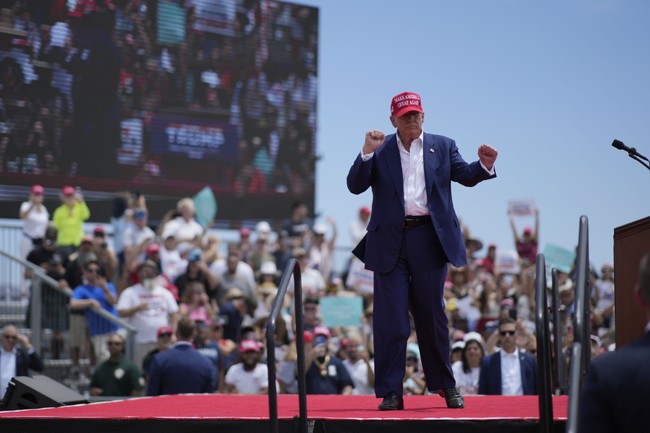
So Much for Biden Being More Trusted to Defend Democracy
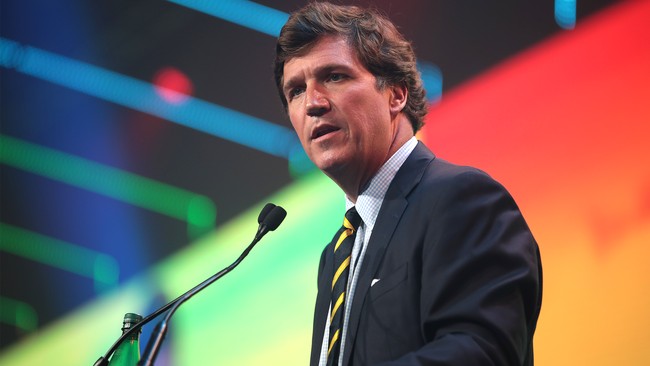
Tucker Carlson Probably Wasn’t Expecting This When He Visited Australia
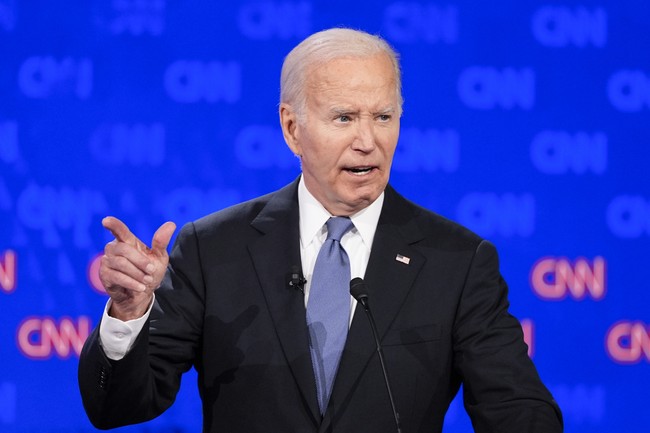
Was This the Sign That the NYT Editorial Board Was Going to Push for Biden’s Ouster?
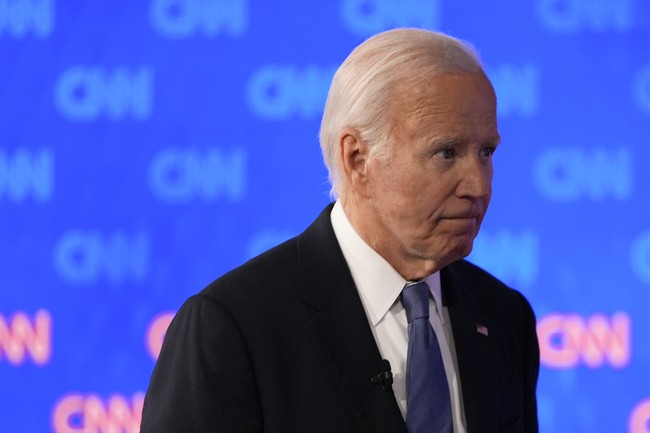
Why an Axios Reporter Took Something Of a Victory Lap on CNN After Biden’s Catastrophic Debate
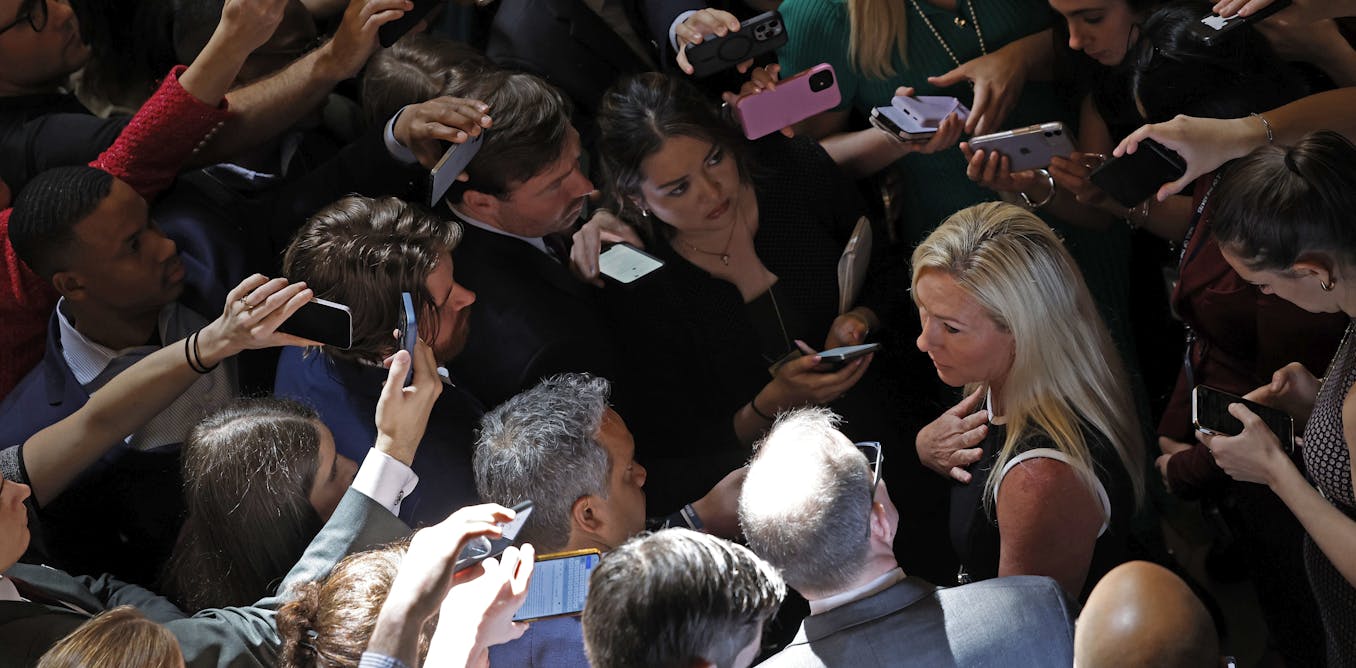
Journalism’s trust problem is about money, not politics
Journalism faces a credibility crisis. Only 32% of Americans report having “a great deal” or “fair amount” of trust in news reporting – a historical low.
Journalists generally assume that their lack of credibility is a result of what people believe to be reporters’ and editors’ political bias. So they believe the key to improving public trust is to banish any traces of political bias from their reporting.
That explains why newsroom leaders routinely advocate for maintaining “objectivity” as a journalistic value and admonish journalists for sharing their own opinions on social media.
The underlying assumption is straightforward: News organizations are struggling to maintain public trust because journalists keep giving people reasons to distrust the people who bring them the news. Newsroom managers appear to believe that if the public perceives their journalists as politically neutral, objectively minded reporters, they will be more likely to trust – and perhaps even pay for – the journalism they produce.
Yet, a study I recently published with journalism scholars Seth Lewis and Brent Cowley in Journalism, a scholarly publication, suggests this path of distrust stems from an entirely different problem.
Drawing on 34 Zoom-based interviews with adults representing a cross-section of age, political leaning, socioeconomic status and gender, we found that people’s distrust of journalism does not stem from fears of ideological brainwashing. Instead, it stems from assumptions that the news industry as a whole values profits above truth or public service.
The Americans we interviewed believe that news organizations report the news inaccurately not because they want to persuade their audiences to support specific political ideologies, candidates or causes, but rather because they simply want to generate larger audiences — and therefore larger profits.

Commercial interests undermine trust
The business of journalism depends primarily on audience attention. News organizations make money from this attention indirectly, by profiting off the advertisements – historically print and broadcast, now increasingly digital – that accompany news stories. They also monetize this attention directly, by charging audiences for subscriptions to their offerings.
Many news organizations pursue revenue models that combine both of these approaches, despite serious concerns about the likelihood of either leading to financial stability.
Although news organizations depend on revenue to survive, journalism as a profession has long maintained a “firewall” between its editorial decisions and business interests. One of journalism’s long-standing values is that journalists should cover whatever they want without worrying about the financial implications for their news organization. NPR’s Ethics Handbook, for example, states that “the purpose of our firewall is to hold in check the influence our funders have over our journalism.”
What does this look like in practice? It means that journalists at the Washington Post should, according to these principles, feel encouraged to pursue investigative reporting into Amazon despite the fact that the newspaper is owned by Amazon founder and executive chairman Jeff Bezos.
While the effectiveness of this firewall in the real world is far from assured, its existence as a principle within the profession suggests that many working journalists pride themselves on following the story wherever it leads, regardless of its financial ramifications for their organization.
Yet despite the importance of this principle to journalists, the people we interviewed seemed unaware of its importance – indeed, its very existence.
Bias toward profits
The people we spoke with tended to assume that news organizations made money primarily through advertising instead of also from subscribers. That led many to believe that news organizations are pressured to pursue large audiences so that they can generate more advertising revenue.
Consequently, many of the people interviewed described journalists as being enlisted in an ongoing, never-ending struggle to capture public attention in an incredibly crowded media environment.
“If you don’t get a certain number of views, you’re not making enough money,” said one of our interviewees, “and then that doesn’t end well for the company.”
People we spoke with tended to agree that journalism is biased, and assumed that such bias exists for profit-oriented rather than strictly ideologically oriented reasons. Some see a convergence in these reasons.
“[Journalists] get money from various support groups that want to see a particular agenda pushed, like George Soros,” said another interviewee. “It’s profits over journalism and over truth.”
Others we spoke with understood that some news organizations depend primarily on their audiences for financial support in the form of subscriptions, donations or memberships. Although these interviewees saw news organizations’ means of generating revenue differently from those who assumed that the money mostly came from advertising, they still described deep distrust toward the news that stemmed from concerns about the news industry’s commercial interests.
“That’s how they make money,” one person said about subscriptions. “They want to entice you with a different version of the news that is not, I personally believe, overall going to be accurate. They get you to pay for that and – poof – you’re a sucker.”
Misplaced concern about bias
In light of these findings, it appears that journalists’ concerns that they must defend themselves against accusations of ideological bias might be misplaced.
Many news organizations have pursued efforts at transparency as an overarching approach to earning public trust, with the implicit goal being to demonstrate that they are doing their work with integrity and free from any ideological bias.
Since 2020, for example, The New York Times has maintained a “Behind the Journalism” page that describes how the newspaper’s reporters and editors approach everything, from when they use anonymous sources to how they confirm breaking crime news and how they are covering the Israel-Hamas War. The Washington Post similarly began maintaining a “Behind the Story” page in 2022.
Yet these displays do not address the chief cause for concern among the people we interviewed: the influence of profit-chasing on journalistic work.
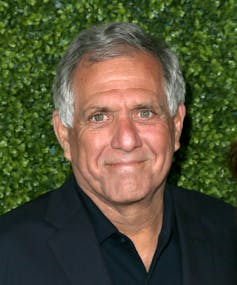
Instead of worrying quite so much about perceptions of journalists’ political biases, it might be more beneficial for newsroom managers to shift their energies to pushing back against perceptions of economic bias.
Perhaps a more effective demonstration of transparency would focus less on how journalists do their jobs and more on how news organizations’ financial concerns are kept separate from evaluations of journalists’ work.
Cable news as a stand-in
The people we interviewed also often appeared to conflate television news with other forms of news production, such as print, digital and radio. And there is ample evidence that television news managers do indeed appear to privilege profits over journalistic integrity.
“It may not be good for America, but it’s damn good for CBS,” said CBS chairman Leslie Moonves of the massive coverage of then-presidential candidate Donald Trump in 2016. “The money’s rolling in.”
With that in mind, perhaps discussions about improving trust in journalism could begin by acknowledging the extent to which the public’s skepticism toward the media is well-founded – or, at the very least, by more explicitly distinguishing between different kinds of news production.
In short, people are skeptical of the news and distrustful of journalists, not because they think journalists want to brainwash them into voting certain ways, but because they think journalists want to make money off their attention above all else.
For journalists to seriously address the root causes of the public’s distrust in their work, they will need to acknowledge the economic nature of that distrust and reckon with their role in its perpetuation.

Debate offers opportunity for errors, partisan spin − and maybe an opening for change
The two leading presidential candidates are set to debate on live television on June 27, 2024. Neither will yet be the official nominee of his party, which is expected to happen at the parties’ conventions in the coming weeks.
The timing of the debate – on the Thursday leading into the week of the Fourth of July, far earlier than the usual fall debates – virtually guarantees a much smaller audience than would usually watch a presidential debate.
The event itself will be unlike most previous debates between presidential candidates, though it will be broadcast live on several TV channels and online, as is the norm.
It is sponsored and hosted by CNN, not by the nonpartisan Commission on Presidential Debates, which has sponsored every presidential debate since 1988. The debate rules say there will be no audience – the candidates will be in a television studio with just the moderators and production personnel. During the two commercial breaks, the candidates will not be allowed to interact with their campaign staff. CNN will mute the microphone of each candidate when it is not his turn to speak.
As a former political communications consultant who now teaches political communication at Auburn University, I believe there are key ways this new type of debate, at a different place and time than usual, could affect the presidential election.
Opportunities for errors
Historically, debates tend to have greater effects on the outcome of elections when one of the candidates says or does something stupid.
For instance, in 1976 GOP candidate and then-President Gerald Ford insisted, wrongly, that Poland wasn’t under Communist rule. In 1988, Democratic candidate Michael Dukakis answered a question about his wife’s safety with a dispassionate speech on drug policy. In 1992, President George H.W. Bush repeatedly looked at his watch while debating Bill Clinton.
All three men lost their races for the White House.
Both candidates in the June 27 debate have weaknesses that could lead to similar problems – or worse.
If Biden appears lost or confused at any point in the debate, it could raise questions about his competence and seriously hurt his chances for reelection. If Trump launches into one of his tirades about any number of subjects, he could frighten moderates into voting for Biden or not voting at all.
Because neither political party has held its nominating conventions, it is not out of the question that a very poor showing by either candidate could lead to serious discussions about replacing that candidate as the party’s nominee.
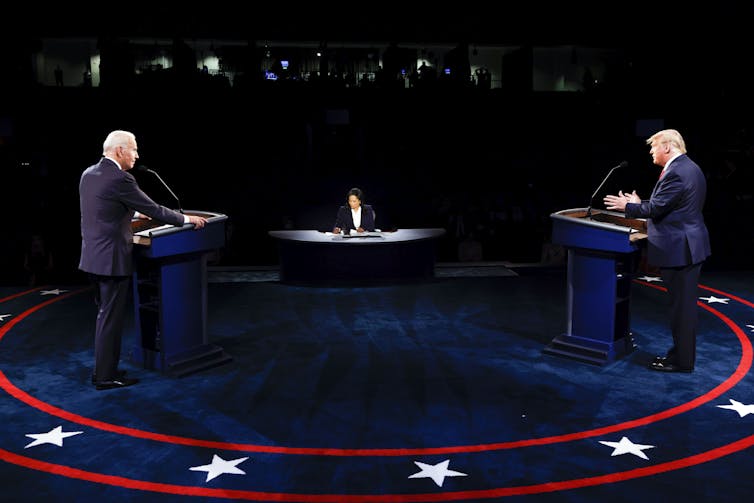
A focus on words
The rules for the debate create some challenges and opportunities for each candidate.
The fact that microphones will be muted for the candidate who isn’t being asked a question should make it easier for Biden to stay focused and on message without being constantly interrupted by Trump, as he was when they debated in 2020. It should also make it easier for Trump to appear more like a statesman and less like a bully, since television audiences will be less likely to hear any interruptions or outbursts.
CNN’s moderators face the challenge of managing the speaking times and microphones in a way that does not appear to favor one candidate over the other.
Ideally, with no live audience to react to the candidates, viewers’ attention should be more easily focused on the substance of the candidates’ words.
Whether that happens will depend on the moderators. Jake Tapper and Dana Bash need to be careful not to appear to interrupt or challenge one candidate more than another. Many conservatives are already suspicious that CNN will show favor to Biden by asking him fewer follow-up questions or doing more on-the-spot fact-checking of Trump’s responses.
Partisan spin
With fewer viewers in real time, there will be more opportunities for partisans to put their post-debate spin on what happened, both in traditional media and online.
Spin doctors are not new to presidential debates, but with fewer people having seen the full event in context, there will be more opportunity for selectively editing clips by the right to make Biden appear dazed and confused or by the left to show Trump as a bigot and a bully.
Even if the intent of a debate is for the candidates’ words to matter most, what carries a debate in the public’s eye is not the wise policy discussion or the nuanced diplomacy: It’s the sound bite.
Examples include Ronald Reagan’s quip about not making an issue of Walter Mondale’s youth and inexperience in 1984 and Lloyd Bentsen’s “Senator, you’re no Jack Kennedy” reply to Dan Quayle’s 1988 assertion that he had as much experience in the Senate as John F. Kennedy had before becoming president.
The single advantage of the June 27 debate is that it gives both campaigns the chance to test their candidates and messages while very few voters are paying attention. This could allow the campaigns to adjust their messages or – if things go terribly, horribly wrong – even letting the party choose another candidate.

Montana Judge Strikes Down Law Clarifying There Are Only 2 Sexes
A Montana judge is striking down a state law defining “sex” as either male or female, claiming that the law violates the Montana State Constitution…. Read More
The post Montana Judge Strikes Down Law Clarifying There Are Only 2 Sexes appeared first on The Daily Signal.
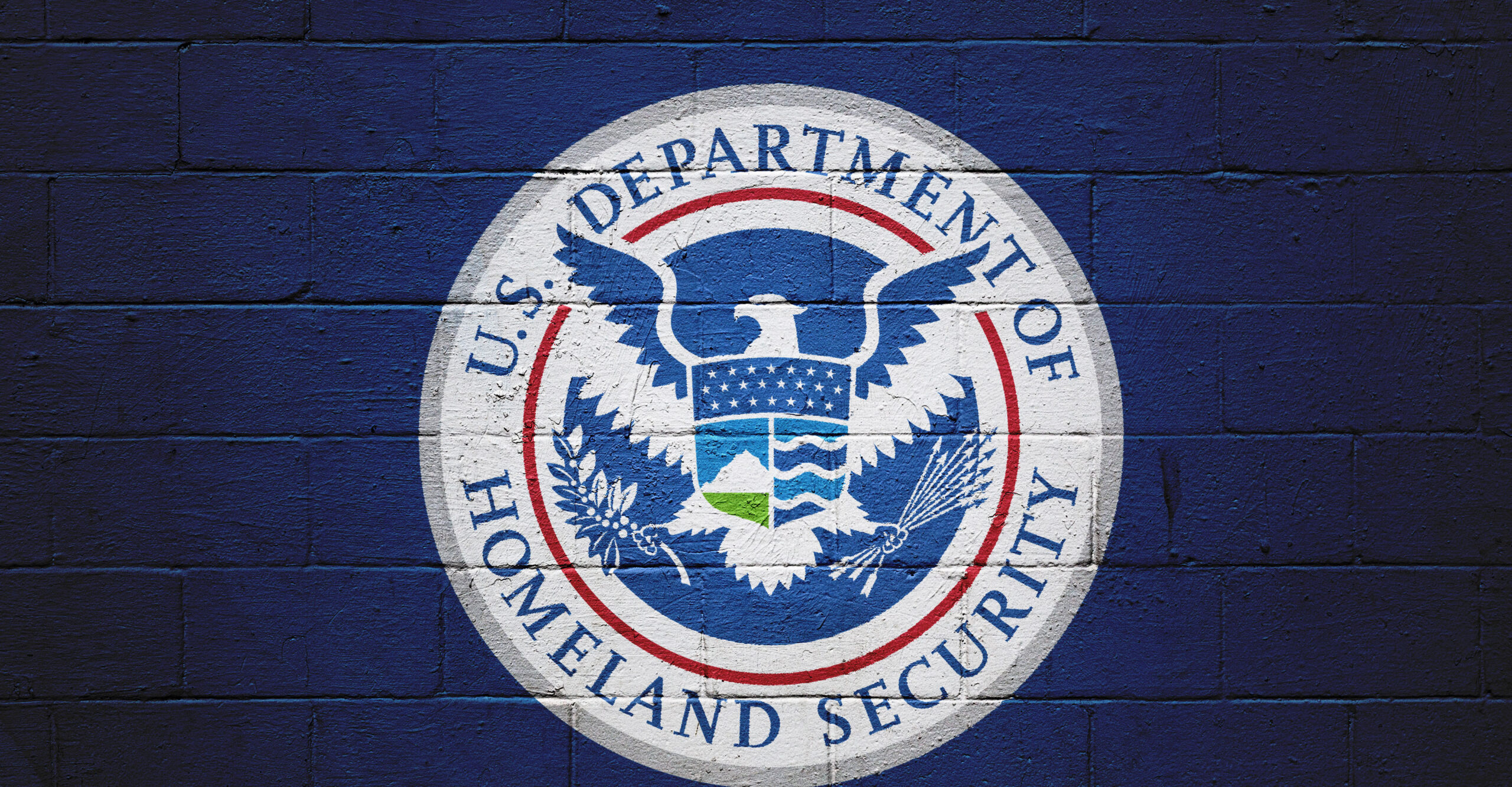
Inspectors General Clash in Federal Lawsuit Alleging Secrecy, Illegality
A watchdog agency that has called out many of the Biden administration’s failures at the border has faced an onslaught of frivolous and time-consuming investigations,… Read More
The post Inspectors General Clash in Federal Lawsuit Alleging Secrecy, Illegality appeared first on The Daily Signal.

Are Soft-on-Crime Policies Jacking Up Car Insurance Premiums?
Over the past two years, auto insurance prices have surged by an average of 27% nationally. That’s an increase from $127 a month in 2022… Read More
The post Are Soft-on-Crime Policies Jacking Up Car Insurance Premiums? appeared first on The Daily Signal.
